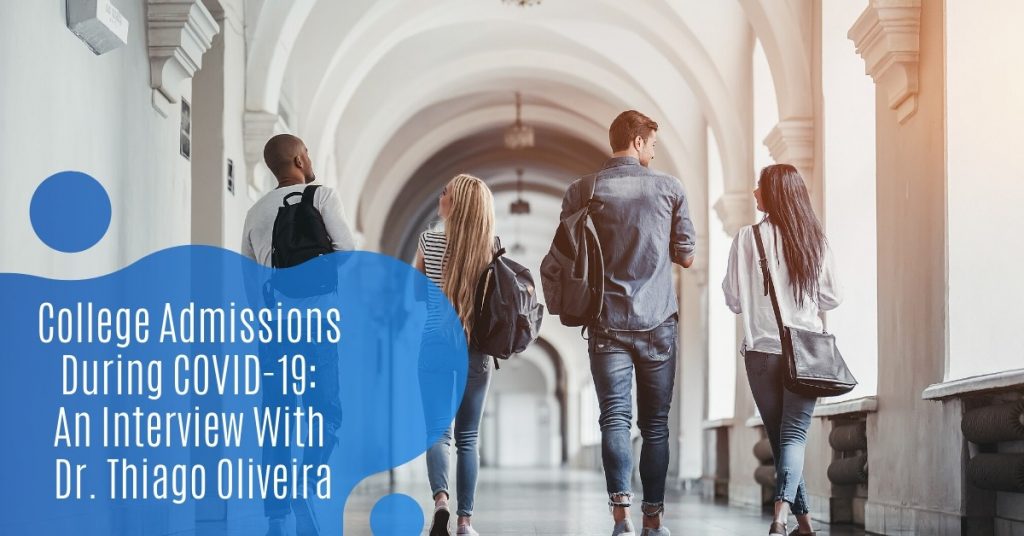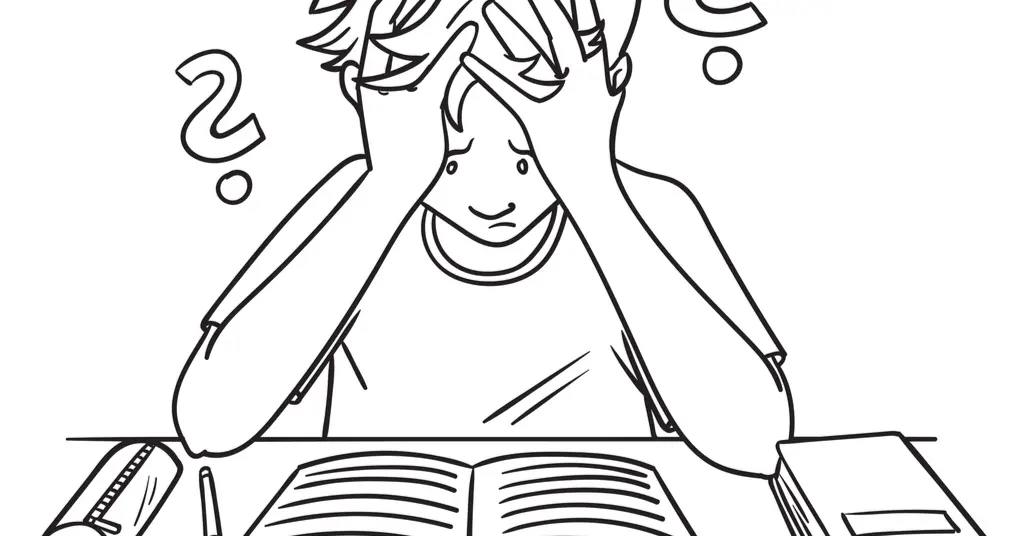In an educational landscape drastically changed by the COVID-19 pandemic, students, parents, and schools find themselves traversing a college-readiness path marked by uncertainty.
Colleges and universities are working feverishly to adapt, which leaves us all with many questions. How will things change in the year (or years) to come? How should students and high schools adjust? What do students need to know? How long will this last?
We spoke with Dr. Thiago Oliveira, a professional school counselor at Dallas’ Highland Park High School, and asked him to share some insight from his unique on-the-ground perspective.
Tell us a little about your background and current position
I was born in Sao Paulo, Brazil, and speak Spanish, Portuguese, and English. I’ve been a school counselor for more than 15 years.
I have experience in all three levels of education: elementary, middle school, and high school counseling. I currently serve as one of the high school counselors at Highland Park High School for four years. I have two masters in school counseling and professional counseling and have earned a PhD. in Educational Psychology.
What are you seeing with college admissions right now due to COVID-19?
These are unprecedented times. The ripple effects of this pandemic will be felt for years to come. Universities are currently brainstorming several solutions for admissions and school functionality. These are monumental decisions that could define the future or demise of many academic institutions.
At the moment, many colleges are closed to campus visits. Admission events such as college tours and open houses are canceled or moved to a virtual setting. May 1 is the National College Decision Day, the day high school seniors commit to a college. More than 400 colleges have extended the deadline for admitted students to submit deposits to June 1 or later to give students and families time to make decisions amid the uncertainty caused by the coronavirus pandemic.
The negative side of these accommodations is undoubtedly on the college side. There will be great uncertainty about their incoming class and tuition revenues.
What are the biggest challenges you are dealing with due to the situation?
Managing anxiety is probably the number one concern. Some students are thinking about taking a gap year if colleges decide not to have the typical school experience. Other students have had a difficult time finishing their senior year under this virtual system.
Switching from an extrinsically motivated to an intrinsically motivated system has been quite an adjustment to a lot of students. Anxiety and panic are occurring when students begin to think of an online academic system extending towards the fall/winter semesters of their freshman year of college.
Calming their anxiety, empathizing with their situation, and encouraging resilience has been our primary focus lately.
Do you anticipate that these challenges will persist long-term?
There is speculation that this pandemic will carry on for longer than anticipated. Education has, undoubtedly, needed to update and adjust how we conduct instruction. These challenges will continue through the fall and spring of the 2020/21 academic year.
Traditional admissions requirements will need to adapt to the skewed academic data. Innovative testing environments for AP®/SAT®/ACT® will unquestionably change the standardized testing world as we know it.
Gap students could triple this next year and potentially reformat the admission world for the 2021 admissions window.
What are the most important things high schools can be doing right now to support their students in their college admissions journey?
High schools must juggle between giving critical information to students and not overwhelming them with too many unnecessary emails. That being said, college admission information is rapidly changing. Providing the most up-to-date information can help juniors and seniors make wise decisions for their post-secondary goals.
I do believe the college admissions field will dramatically change. High school college admission counselors will need to adapt their practices and update their data to prepare students for this new-up-coming college admission world.
What are the most important things students need to know/need to be doing?
Students need to continue to pursue their passions. They must continue to ask the question: “What makes you come alive?” and pursue that wholeheartedly and safely.
During the summer, I would advise students to pursue safe opportunities to gain experience and culture. Colleges are always looking for students that have diverse perspectives.
Finally, students need not panic. The whole world is on pause, and admission officers are just as uncertain about how to react to this pandemic as the rest of us—students must focus on what they can control.
For students or schools looking to pursue online preparation for high-stakes exams like the SAT or the ACT exams, click here for UWorld’s FREE seven-day trial. Your dream school requires a dream score. Let us help you make that dream come true.




